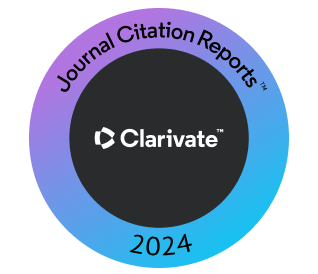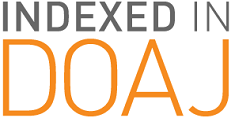Detection of Sperm DNA Integrity and Some Immunological Aspects in Infertile Males
DOI:
https://doi.org/10.14500/aro.10924Keywords:
Acridine orange test, Anti-sperm antibodies, Deoxyribonucleic acid fragmentation index, Mixed agglutination reactionAbstract
Immunoinfertility caused by anti-sperm antibodies (ASAs) represents about 10–20% of infertility among couples, which interfere with sperm motility and ability to penetrate cervical mucus, sperm-oocyte binding, fertilization, and embryo development. In addition, deoxyribonucleic acid (DNA) damages are increasingly found with infertile cases affecting male reproduction potency and progeny. This study aims to assess the semen, presence of ASAs, and DNA fragmentation index in normozoospermic patients. A total number of 116 cases with an average age of 20–51 years old, and duration of infertility at 4.70 ± 2.77 are classified into 77 and 39 primary and secondary types of infertility, respectively. Mixed agglutination reaction test was used to estimate the ASAs in semen (direct method) and in seminal plasma and blood serum (indirect method), for both immunoglobulins IgG and IgA. Acridine orange test was used to detect DNA fragmentation index. The results showed a significant difference (P > 0.05) for those with a secondary type of infertility at means 24.37 and 31.48 for IgG, and 14.46 ± 1.76 and 6.86 ± 0.39 for IgA by both direct and indirect methods, respectively. The direct method showed a significant difference only for the sperm tail, while that for indirect method was in sperm mid-piece. The mean of DFI for all cases was 38.25 ± 2.08, at 41.61 ± 2.19 and 31.63 ± 4.29, for both primary and secondary cases, respectively. The percentage of ASAs revealed no significant difference with DFI, except in some parts of sperm.
Downloads
References
Abu-Raya, B., Michalski, C., Sadarangani, M. and Lavoie, P.M., 2020. Maternal immunological adaptation during normal pregnancy. Frontiers in Immunology, 11, pp.575197.
Ahmed, T.A., Ahmed, S.M., El-Gammal, Z., Shouman, S., Ahmed, A., Mansour, R. and El-Badri, N., 2020. Oocyte aging: The role of cellular and environmental factors and impact on female fertility. Advances in Experimental Medicine and Biology, 8, pp.109-123.
Ata, N., Turkler, C., Ulug, P. and Mertoglu, C., 2021. Is there a role of antisperm antibodies in women with unexplained infertility-a Turkish pilot cross sectional case control study. Annals of Medical Research, 28(9), pp.1615-1619.
Audu, O., Musa, B., Adeiza, M.A, Muhammed, A., Ahmad, A., Ega, B., Opaluwa, S.A. and Shuaib, B.I., 2021. Sero-prevalence of IgG and IgA antisperm antibodies in men with infertility attending two major hospitals in Zaria, Nigeria. Health Science Journal, 15(5), pp.1-5.
Barbonetti, A., Castellini, C., D’Andrea, S., Cordeschi, G., Santucci, R., Francavilla, S. and Francavilla, F., 2019. Prevalence of anti-sperm antibodies and relationship of degree of sperm auto-immunization to semen parameters and post-coital test outcome: A retrospective analysis of over 10 000 men. Human Reproduction, 34(5), pp.834-841.
Björndahl, L. and Brown, J.K., 2022. The sixth edition of the WHO laboratory manual for the examination and processing of human semen: Ensuring quality and standardization in basic examination of human ejaculates. Fertility and Sterility, 117, pp.246-251.
Chantler, E., Sharma, R. and Sharman, D., 1989. Changes in cervical mucus that prevent penetration by spermatozoa. In Symposia of the Society for Experimental Biology, 43, pp.325-336.
Chereshnev, V.A., Pichugova, S.V., Beikin, Y.B., Chereshneva, M.V., Iukhta,A.I., Stroev, Y.I. and Churilov, L.P., 2021. Pathogenesis of autoimmune male infertility: Juxtacrine, paracrine, and endocrine dysregulation. Pathophysiology, 28(4), pp.471-488.
Cooper, T.G., Noonan, E., von Eckardstein, S., Auger, J., Baker, H.W., Behre, H.M., Haugen, T.B., Kruger, T., Wang, C., Mbizvo, M.T. and Vogelsong, K.M. (2010). World Health Organization reference values for human semen characteristics. Human Reproduction Update, 16, pp.231-245.
Dacheux, J.L. and Dacheux, F., 2014. New insights into epididymal function in relation to sperm maturation. Reproduction, 147(2), pp.R27-R42.
El-Sherbiny, A.F., Ali, T.A., Hassan, E.A., Mehaney, A.B. and Elshemy, H.A., 2021. The prognostic value of seminal anti-sperm antibodies screening in men prepared for ICSI: A call to change the current antibody-directed view point of sperm autoimmunity testing. Therapeutic Advances in Urology, 13, p.1-9.
Garolla, A., Pizzol, D., Carosso, A.R., Borini, A., Ubaldi, F.M., Calogero, A.E., Ferlin, A., Lanzone, A., Tomei, F., Engl, B., Rienzi, L., De Santis, L., Coticchio, G., Smith, L., Cannarella, R., Anastasi, A., Menegazzo, M., Stuppia, L., Corsini, C. and Foresta, C. 2021. Practical clinical and diagnostic pathway for the investigation of the infertile couple. Frontiers in Endocrinology (Lausanne), 11, pp.1032.
Houda, A., Nyaz, S., Sobhy, B.M., Bosilah, A.H., Romeo, M., Michael, J.P. and Eid, H.M., 2021. Seminiferous tubules and spermatogenesis. In: Male Reproductive Anatomy. IntechOpen, London.
Lavelle, E.C. and Ward, R.W., 2022. Mucosal vaccines-fortifying the frontiers. Nature Reviews Immunology, 22, pp.236-250.
Liu, C.L., Li, P., Cai, G.F., Morse, A., Liu, J., Chen, Z.H., Zhang, X. and Sun, L., 2022. Optimal follow-up duration for assessment of birth defects after in vitro fertilization-embryo transfer: A multicenter 5-year cohort study in China. Frontiers in endocrinology (Lausanne), 13, p.382.
Mateo-Otero, Y., Llavanera, M., Recuero, S., Delgado-Bermúdez, A., Barranco, I., Ribas-Maynou, J. and Yeste, M., 2022. Sperm DNA damage compromises embryo development, but not oocyte fertilisation in pigs. Biological Research, 55(1), pp.1-12.
Maverakis, E., Moudgil, K.D. and Sercarz, E.E., 2006. Generation of T-cell antigenic determinants in autoimmunity and their recognition. In: The Autoimmune Diseases. Academic Press, Cambridge. pp.179-191.
Muscianisi, F., De Toni, L., Giorato, G., Carosso, A., Foresta, C. and Garolla,A., 2021. Is HPV the novel target in male idiopathic infertility? A systematic review of the literature. Frontiers in Endocrinology, 12, p.643539.
Rose, N.R., 2008. Immunologic Diagnosis of Autoimmunity: In O’Gorman, M.R. and Donnenberg, A.D., editors. Handbook of Human Immunology. 2nd ed. CRC Press, Boca Raton, New York, pp.378-380.
Sadecki, E., Weaver, A., Zhao, Y., Stewart, E.A. and Ainsworth, A.J., 2022. Fertility trends and comparisons in a historical cohort of US women with primary infertility. Reproductive Health, 19(1), pp.1-11.
Selvam, M.K., Ambar, R.F., Agarwal, A. and Henkel, R., 2021. Etiologies of sperm DNA damage and its impact on male infertility. Andrologia, 53(1), p.e13706.
Shibahara, H, Wakimoto, Y, Fukui, A and Hasegawa, A., 2021. Anti-sperm antibodies and reproductive failures. American Journal of Reproductive Immunology, 85, e13337.
Silva, A.F., Ramalho-Santos, J. and Amaral, S., 2021. The impact of antisperm antibodies on human male reproductive function: An update. Reproduction, Stewart, A.F. and Kim, E.D., 2011. Fertility concerns for the aging male. Urology, 78(3), pp.496-499.
Tahiat, A., Yagoubi, A., Ladj, M.S., Belbouab, R., Aggoune, S., Atek, L., Bouziane, D., Melzi, S., Boubidi, C., Drali, W. and Bendahmane, C., Iguerguesdaoune, H., Taguemount, S., Soufane, A., Oukil, A., Ketfi, A., Messaoudi, H., Boukhenfouf, N., Ifri, M.A., Madani, T.B., Belhadj, H., Benhala, K.N., Khiari, M., Cherif, N., Smati, L., Arada, Z., Zeroual, Z., Bouzerar, Z., Ibsaine, O., Maouche, H., Boukari, R. and Djenouhat, K., 2021. Diagnostic and predictive contribution of autoantibodies screening in a large series of patients with primary immunodeficiencies. Frontiers in Immunology, 12, p.1130.
Tennakoon, V., Yasawardene, S.G. and Weerasekera, D.S., 2012. Antisperm antibodies: Incidence, isotypes and location on spermatozoa, their implications on fertilization and on pregnancy rate at a selected Centre in Sri Lanka. Sri Lanka Journal of Obstetrics and Gynaecology, 32(1), pp. 8-16.
Vickram, S, Dhama, K., Chakraborty, S., Samad, H.A., Latheef, S.K., Sharun, K. Archana K., Khurana, S.K., Tiwari, R., Bhatt, P. and Chaicumpa, W., 2019. Role of antisperm antibodies in infertility, pregnancy, and potential for contraceptive and antifertility vaccine designs: Research progress and pioneering vision. Vaccines (Basel), 7(3), p.116.
Woof, J.M. and Mestecky, J., 2015. Mucosal immunoglobulins. In: Mucosal Immunology. Elsevier/Academic Press, Amsterdam, pp.287-324.
Zhang, X., Deng, C., Liu, W., Liu, H., Zhou, Y., Li, Q., Zheng, H., Wang, Q., Jiang, M., Pang, T. and Ma, C., Huang, C., Zhao, Q. and Tang, Y., 2022. Effects of varicocele and microsurgical varicocelectomy on the metabolites in semen. Scientific Reports, 12(1), pp.1-10
Downloads
Published
How to Cite
Issue
Section
License
Authors who choose to publish their work with Aro agree to the following terms:
-
Authors retain the copyright to their work and grant the journal the right of first publication. The work is simultaneously licensed under a Creative Commons Attribution License [CC BY-NC-SA 4.0]. This license allows others to share the work with an acknowledgement of the work's authorship and initial publication in this journal.
-
Authors have the freedom to enter into separate agreements for the non-exclusive distribution of the journal's published version of the work. This includes options such as posting it to an institutional repository or publishing it in a book, as long as proper acknowledgement is given to its initial publication in this journal.
-
Authors are encouraged to share and post their work online, including in institutional repositories or on their personal websites, both prior to and during the submission process. This practice can lead to productive exchanges and increase the visibility and citation of the published work.
By agreeing to these terms, authors acknowledge the importance of open access and the benefits it brings to the scholarly community.
Accepted 2022-06-07
Published 2022-06-30
















 ARO Journal is a scientific, peer-reviewed, periodical, and diamond OAJ that has no APC or ASC.
ARO Journal is a scientific, peer-reviewed, periodical, and diamond OAJ that has no APC or ASC.